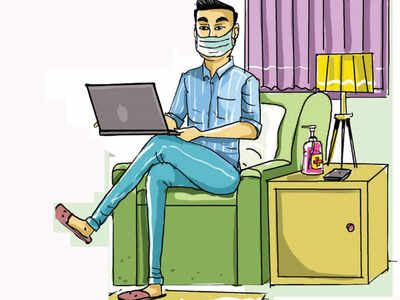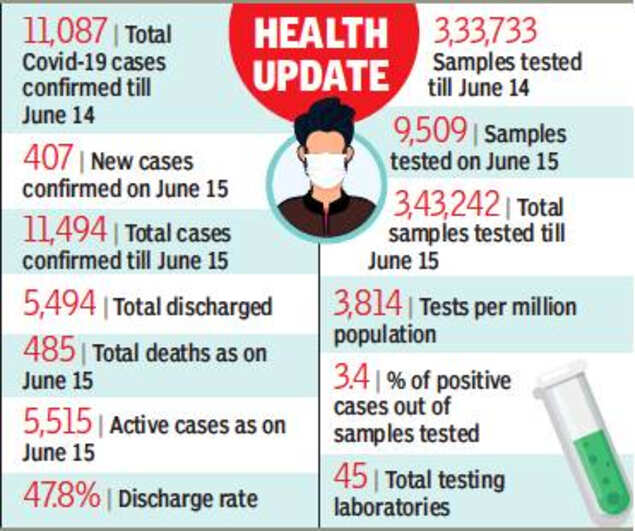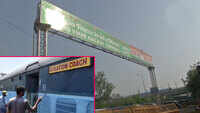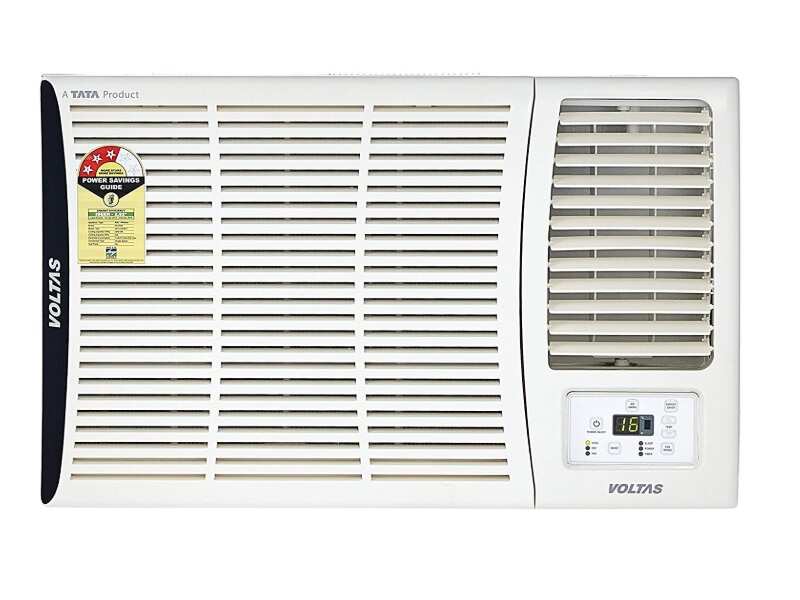
KOLKATA: In a move aimed at freeing up Covid-19 beds, private hospitals in the city have decided to offer patients opting for home quarantine the facility of a “remote-monitoring package” that will allow them to seek long-distance consultation and round-the-clock screening at a fraction of the cost of hospitalisation.
At least three private hospitals have introduced such packages for patients with mild symptoms who can be treated at home, allowing beds to remain free for those with more severe symptoms. The package will include online and telephonic consultations, monitoring of health parameters through instruments provided by hospitals and occasional home visits by doctors from the hospital.

“Since the number of affected has gone up, those with mild symptoms must now opt for home treatment. But they, too, need to be monitored regularly under the supervision of doctors. So, we have designed a ‘remote-monitoring’ package that will offer treatment guidelines and regular monitoring by our consultants even as the patients stay in the comfort of their homes. Recovery will be quicker and screening will ensure that the patient can be shifted to hospital immediately if condition worsens,” said AMRI Hospitals CEO Rupak Barua.
Patients can log on to the hospital’s app to upload their health update, which will be screened by doctors everyday. The doctors will interact with patients online and over telephone twice a week while nurses will keep in touch with patients on a daily basis. “We will deliver pulse oximeters and digital thermometers to patients so that they can screen their vital parameters,” added Barua.
Medica Superspecialty Hospital, too, has just introduced a ‘remote package’ for those with mild symptoms at a cost of Rs 499 a day. It includes consultation with an assigned doctor over phone every alternate day and interaction with a nurse every 24 hours. Under the 10-day package, patients will receive a digital thermometer to monitor temperature and a pulse oximeter to track oxygen saturation. “All that a patient must do is report his or her temperature, pulse rate, oxygen saturation rate and whether there’s a breathing difficulty. In case, one of these seem abnormal, the doctor concerned may visit home or suggest hospitalization,” said Medica chairperson Alok Roy.
He added that with the number of patients with mild symptoms climbing, the package promises to work out well. “This way, constant supervision will be ensured and patients will feel confident to stay at home. Other than helping in keeping beds free for serious cases, it will also save money,” added Roy.
RN Tagore International Institute of Cardiac Sciences (RTIICS) doesn’t have a home-isolation package yet, but it has been asking patients to monitor their temperature and oxygen saturation and report these to an assigned nurse who coordinates between the physician and the patient. “If the patient begins to show any signs of deterioration they are asked to immediately come to the hospital. They are monitored remotely in this manner until the end of their home isolation when they are certified as cured,” said zonal director R Venkatesh.
Peerless Hospital, too, is mulling a remote package that could be introduced within the next two weeks. “We have a slight healthcare personnel crunch at the moment and once it gets sorted out, we will have it,” said CEO Sudipto Mitra.
Another private hospital on EM Bypass is planning to introduce the service through a private agency.
Not all are, however, convinced about a remote-monitoring system. “Few hospitals have enough healthcare workers now who can do remote-monitoring. If it is left to an external agency, the quality and speed of screening would be doubtful. That could render the system futile,” said a private hospital consultant.
At least three private hospitals have introduced such packages for patients with mild symptoms who can be treated at home, allowing beds to remain free for those with more severe symptoms. The package will include online and telephonic consultations, monitoring of health parameters through instruments provided by hospitals and occasional home visits by doctors from the hospital.

“Since the number of affected has gone up, those with mild symptoms must now opt for home treatment. But they, too, need to be monitored regularly under the supervision of doctors. So, we have designed a ‘remote-monitoring’ package that will offer treatment guidelines and regular monitoring by our consultants even as the patients stay in the comfort of their homes. Recovery will be quicker and screening will ensure that the patient can be shifted to hospital immediately if condition worsens,” said AMRI Hospitals CEO Rupak Barua.
Patients can log on to the hospital’s app to upload their health update, which will be screened by doctors everyday. The doctors will interact with patients online and over telephone twice a week while nurses will keep in touch with patients on a daily basis. “We will deliver pulse oximeters and digital thermometers to patients so that they can screen their vital parameters,” added Barua.
Medica Superspecialty Hospital, too, has just introduced a ‘remote package’ for those with mild symptoms at a cost of Rs 499 a day. It includes consultation with an assigned doctor over phone every alternate day and interaction with a nurse every 24 hours. Under the 10-day package, patients will receive a digital thermometer to monitor temperature and a pulse oximeter to track oxygen saturation. “All that a patient must do is report his or her temperature, pulse rate, oxygen saturation rate and whether there’s a breathing difficulty. In case, one of these seem abnormal, the doctor concerned may visit home or suggest hospitalization,” said Medica chairperson Alok Roy.
He added that with the number of patients with mild symptoms climbing, the package promises to work out well. “This way, constant supervision will be ensured and patients will feel confident to stay at home. Other than helping in keeping beds free for serious cases, it will also save money,” added Roy.
RN Tagore International Institute of Cardiac Sciences (RTIICS) doesn’t have a home-isolation package yet, but it has been asking patients to monitor their temperature and oxygen saturation and report these to an assigned nurse who coordinates between the physician and the patient. “If the patient begins to show any signs of deterioration they are asked to immediately come to the hospital. They are monitored remotely in this manner until the end of their home isolation when they are certified as cured,” said zonal director R Venkatesh.
Peerless Hospital, too, is mulling a remote package that could be introduced within the next two weeks. “We have a slight healthcare personnel crunch at the moment and once it gets sorted out, we will have it,” said CEO Sudipto Mitra.
Another private hospital on EM Bypass is planning to introduce the service through a private agency.
Not all are, however, convinced about a remote-monitoring system. “Few hospitals have enough healthcare workers now who can do remote-monitoring. If it is left to an external agency, the quality and speed of screening would be doubtful. That could render the system futile,” said a private hospital consultant.

Coronavirus outbreak
Trending Topics
LATEST VIDEOS
City
 Kerala priest invokes 'Corona Devi' in fight against Covid-19
Kerala priest invokes 'Corona Devi' in fight against Covid-19  Covid-19: Delhi's Anand Vihar station shut for passengers, isolation coaches placed at all platforms
Covid-19: Delhi's Anand Vihar station shut for passengers, isolation coaches placed at all platforms  Delhi: Man in financial distress hires assassins for own murder
Delhi: Man in financial distress hires assassins for own murder  Massive jam at DND Flyway as UP govt restricts entry at Noida-Delhi border
Massive jam at DND Flyway as UP govt restricts entry at Noida-Delhi border
More from TOI
Navbharat Times
Featured Today in Travel
Get the app





